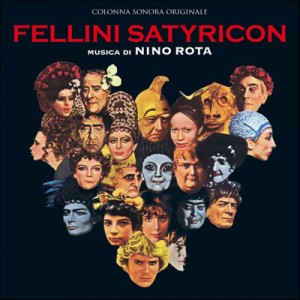“This American carnage stops right here and stops right now.”
President Donald J. Trump, January 20, 2017
———-
As surreal as it was to watch Donald J. Trump place his hand on the Lincoln Bible and assume the presidency, that image was hardly the most unsettling of the unsettling start to his administration. An even more surreal scene played out immediately after the inaugural ceremony inside the U.S. Capitol. Those moments indicate with a starkness that is both surreal and stunning the degree to which the old, conservative Republican Party has become, like Trump, a nativist, nationalistic, anti-trade, immigrant bashing, truth free zone of opportunism and incompetence.

Republican political strategist Steve Schmidt has called what has happened to the GOP “intellectual rot” – the inability or unwillingness to stand on genuine principle rather than cave to the craven charlatan who has now come to completely define the Republican Party. As Schmidt said in October, Republicans in embracing Donald Trump have repeatedly and consciously placed “their party ahead of their country, denying what is so obviously clear to anybody who’s watching about [Trump’s] complete and total, manifest unfitness for this office.”
“The magnitude of its disgrace to the country is almost impossible, I think, to articulate,” Schmidt said while speaking real truth to the power hungry. “But it has exposed the intellectual rot in the Republican Party. It has exposed at a massive level the hypocrisy, the modern day money changers in the temple like Jerry Falwell Jr. And, so this party to go forward, and to represent a conservative vision for America, has great soul searching to do.”
After January 20, 2017 the intellectual rot only grows.
As tradition dictates, the new president was feted at a post-swearing in luncheon hosted by the Congressional leadership, the same bipartisan group of “elite insiders” whom Trump just spent significant parts of his speech lambasting.

“For too long, a small group in our nation’s capital has reaped the rewards of government while the people have borne the cost,” President Trump fumed. “Washington flourished, but the people did not share in its wealth. Politicians prospered, but the jobs left and the factories closed. The establishment protected itself, but not the citizens of our country.”
Who was he talking about? All the people sitting behind him glumly thinking their country was committing suicide in slow motion, that’s who. Was Trump talking about Jimmy Carter and George W. Bush? Barack Obama and Joe Biden? Maybe Paul Ryan and Mitch McConnell? As the New York Times’ Frank Bruni wrote Trump “stood just feet from four of the last six presidents [and] he trashed them, talking about a Washington establishment blind and deaf to the struggles of less fortunate Americans.”
Later Trump lumped all these losers together and said, “We will no longer accept politicians who are all talk and no action, constantly complaining, but never doing anything about it.” There he might have been referring to McConnell, the king of obstruction, the prince of delay, the guy who singlehandedly established the new precedent that no Supreme Court vacancy can be filled in the last year of a president’s term, the senator who made it his only job to oppose – everything.
But just moments later McConnell was offering a toast to the new president, the same man McConnell reportedly told fellow GOP senators back in February of 2016 that they could “drop like a hot rock” if he started hurting their re-election prospects.

The Trump he toasted on Friday, McConnell said, has now become “big, bold, energetic, resilient, always looking to the next horizon.” This is the guy who has repudiated virtually everything Republicans have stood for since Dwight Eisenhower, but he won and they won so let’s go big and bold, embrace intolerance and Putin and dismiss any criticism. The Age of Trump means never having to say or believe anything coherent. Power is enough.
It was also enough, had you any sense of shame, to make you choke on your lobster, but the Republican politicians who know in their hearts that this man is a fraud, dangerous, unprincipled and ignorant nevertheless smiled and toasted and embraced our national disaster.
While McConnell’s smarmy embrace of Trump is, at least for him, par for the course – he’s a political game player of the first order who undoubtedly thinks he can mold the new president to his aim, and besides his wife got a seat at the Cabinet table – the near total party capitulation to a bumbling incompetent with an authoritarian mean streak is still an amazing thing to observe.
In the life of any politician there comes a moment when the decision is to risk popularity and position in the interest of principle. Do you place party first or country? The GOP stormed through that moment without breaking stride. The GOP establishment has decided that power is what counts and is determined, and here I paraphrase their leader, to protect itself and not the citizens of the country.

Case in point: Republican Congressman Jason Chaffetz ofUtah, chairman of the House Committee on Oversight and Government Reform, who represents one of the safest Republican districts in the nation. In a few short hours Chaffetz – who at one point disowned Donald Trump as a legitimate candidate – pledged to continue to investigate Hillary Clinton and her email, tried to intimidate the head of the independent Office of Government Ethics and said he would not engaging in “a fishing expedition” to explore the serious question of Trump’s financial conflicts of interest and likely violations of the Constitution.
Since Chaffetz’s memory is so short let’s remember what he said in the wake of the infamous Billy Bush “grab their….” video last fall:
“I can no longer in good conscience endorse this person for president. It is some of the most abhorrent and offensive comments that you can possibly imagine. My wife and I, we have a 15-year-old daughter, and if I can’t look her in the eye and tell her these things, I can’t endorse this person.” Chaffetz punctuated his statement with “I’m out.”
Obviously, he found his way back in.
The intellectual rot displays in other ways, as well. The party that has defined itself by an emphasis on national security now condones a man ready to cast off NATO and facilitate Russian dominance of Europe. The free traders in the GOP stand in the corner while their leader embraces the elixir of protectionism, a concoction that “will lead to great prosperity and strength.” The party that spent eight years and four elections demonizing an effort to make health insurance available to millions more Americans now prepares to repeal that law with absolutely no notion of what will replace it. The intellectual rot is deep and deadly.
As the incisive Michael Gerson – George W. Bush’s speechwriter – observed Trump’s inaugural speech was really a “funeral oration at the death of Reaganism, and of conservatism more broadly.” Stoke the funeral pyre. Mitch McConnell and Jason Chaffetz are holding the gas can.
Donald Trump’s “base” will undoubtedly love the antics of his first moments in office – his dark, dystopian, nativist disavowal of U.S. leadership in the world, including proclaiming “from this day forward, it’s going to be only America first, America first,” his fact free fights with reporters about the size of his crowds and his dismissal of the millions who peacefully protested his presidency over the weekend. The man Mitch McConnell considers “big” and “bold” stood before the wall of honor at CIA headquarters where Americans who have died in service to their country are commemorated and riffed – inaccurately – on the number of times he has appeared on the cover of TIME magazine. This is the new Republican Party.
The Republicans “elites” have found comfort in their own echo chamber consisting of carefully gerrymandered Congressional districts, a compliant propaganda operation led by Fox, Breitbart and now the White House, an embrace of misinformation and a disdain for facts. As Steven Waldman pointed out recently in the Washington Monthly, “Trump’s waning popularity with the general electorate doesn’t matter to [Congressional Republicans] as long as conservative Republicans still like him.”
Yet even the enabling Republicans, at least most of them, must quietly be stressing over a president who they continue to know is manifestly unfit and even dangerous. They are playing a risky, high stakes political game, gambling all the nation’s chips on the long shot chance that Donald Trump won’t eventually implode taking them down with him. In the meantime, all who draw close to this disaster will be tainted by their proximity.
At the expense of placating an overwhelmingly white, nationalist, anti-immigrant base that yearns for a strong man to disrupt and destroy the “elites,” the leaders of the Republican Party find that they have embraced their own destroyer. They deserve their fate even if the country doesn’t.





































